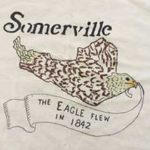
Eagle Feathers #196 – Our Tripolitan Hero
By Bob (Monty) Doherty
In 1808, a 20-foot tall Italian marble monument was erected just inside the gates of the Navy Yard in Washington, D.C. The U.S.S. Constitution delivered it from Italy via Boston. It was the city’s first out door memorial, the first American monument approved by Congress, and the only one for decades to follow.
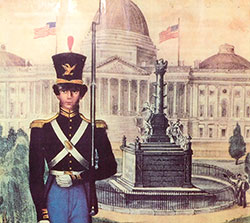
During the War of 1812’s attack and ransacking of Washington D.C., the British severely damaged the sculpture. After being repaired in 1831, it was moved to the front of the Capitol Building on its West Wing. Massachusetts’ Representative Edward Everett, a Winter Hill resident, fought to have it located at this most impressive location.
*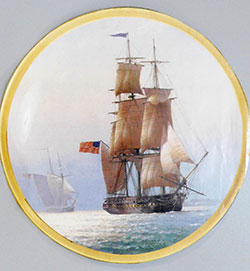
Originally called the Somers Memorial in honor of Tripolitan War hero Captain Richard Somers and his crew, today it is named the Tripoli Monument and lies on the grounds of the United States Naval Academy at Annapolis. Tripoli was the first country to declare war on the infant United States.
*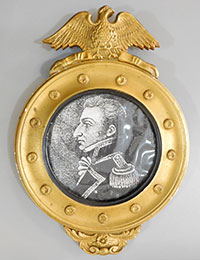
James Fenimore Cooper was America’s first-born novelist. In 1842, Somerville’s first year, Cooper wrote a biography of Captain Somers. He also then called for the remains of Somers and his crew to be returned home from Tripoli. To this day, the intrepid heroes lay in unmarked graves on its beach.
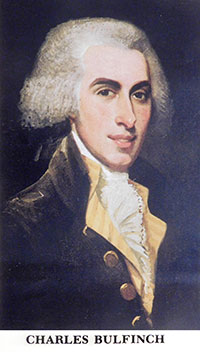
Boston’s Charles Bullfinch, America’s first native-born architect and draftsman for the United States Capitol, designed the grounds for the Somers Memorial. He also drafted drawings for Somerville’s Barrell Mansion and the Mclean Hospital on Cobble Hill.
*
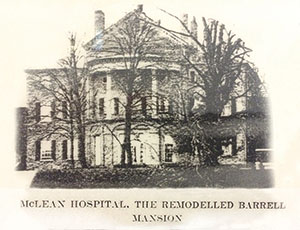
The Longfellow Bridge spans the Charles River connecting Cambridge to Boston. Recently restored, it is thought to be one of the most beautiful bridges in New England. It honors the renowned poet Henry Wadsworth Longfellow. Henry’s mother named him after his uncle, Lieutenant Henry Wadsworth, who died with Captain Somers at Tripoli.
*
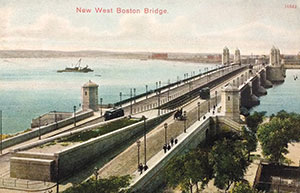
Charles Miller came from a patriotic Charlestown family and initiated the meeting to name a newly formed town. He suggested Somerville. Miller‘s great grandfather was the Revolutionary martyr of April 19, 1775, James Miller whose famous last words were, “I am too old to run.” His brother was the well-known patriot naval Captain Daniel Waters. All present at the meeting favored the name, and it was accepted.
Various Somerville records cite that the town was named as being “purely fanciful.” Other numerous encyclopedias, reference books, and historic societies from the 1800’s to current day claim that Somerville was named after Master Commandant Richard Somers … I agree with those who believe it was named after Somers!















Reader Comments